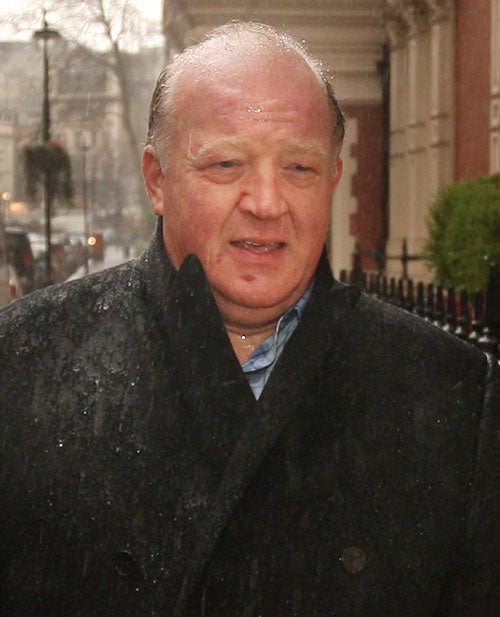'Lack of systems' halts police investigation into MP's expenses

Your support helps us to tell the story
From reproductive rights to climate change to Big Tech, The Independent is on the ground when the story is developing. Whether it's investigating the financials of Elon Musk's pro-Trump PAC or producing our latest documentary, 'The A Word', which shines a light on the American women fighting for reproductive rights, we know how important it is to parse out the facts from the messaging.
At such a critical moment in US history, we need reporters on the ground. Your donation allows us to keep sending journalists to speak to both sides of the story.
The Independent is trusted by Americans across the entire political spectrum. And unlike many other quality news outlets, we choose not to lock Americans out of our reporting and analysis with paywalls. We believe quality journalism should be available to everyone, paid for by those who can afford it.
Your support makes all the difference.Scotland Yard is by no means the first to deliver a scathing assessment of MPs' free-and-easy expenses arrangements. But its complaint that the lax procedures have ruled out a criminal inquiry into disgraced Derek Conway may well end up etched on the system's gravestone. Neither the public nor the overwhelming majority of Parliamentarians seem to believe that the Commons can continue to run on the basis of "gentlemen's agreements" - where the word of a Member is considered beyond question. The case of Mr Conway cast the almost unassailable status of MPs into sharp relief, and confirmed all the worst suspicions of voters.
There was anger and confusion that, despite being condemned for what former Labour minister Frank Field branded "embezzlement", Mr Conway will receive his £60,000 salary for up to another two years before finally leaving Westminster. His "punishment" - a 10-day suspension from Westminster and paying back £13,000 that had been improperly handed to his student son - was widely seen as inadequate.
Now the police insist they cannot investigate the affair because there are a "lack of systems" at the Commons to say how our money should be spent, and ensure the rules are followed. There has been a general conviction for some time that the extensive allowances for MPs are designed to keep the taxpayer in the dark about their true remuneration. On average they claim more than twice their basic pay in expenses every year - a total of nearly £88m in public money.
However, the Commons authorities have been embroiled in a ferocious three-year battle to block the publication of more details of where the cash goes. Finally, disclosure of this material appears to be imminent after landmark victories by freedom of information campaigners. Last month the Information Tribunal ruled that Parliament should release a breakdown of MPs' £23,000-a-year second home allowance - known as the Additional Costs Allowance (ACA). Those details will include items such as kitchens, carpets and stereos claimed under the so-called "John Lewis list" - which is used by officials to decide the maximum that can be spent on goods. A linked FOI ruling has also ordered the Commons to provide a further breakdown of MPs' claims for everything - including travel, office costs and stationery. These detailed disclosures will doubtless prove embarrassing for many of those who run the country.
But the wider issue is that much of the information needed to scrutinise expenses at Westminster effectively is simply not collected. Currently receipts are not needed for claims below £250 - although this is reducing to £25 from next month. The Information Tribunal branded the system of "self-certification" - with no formal auditing of claims - inadequate, and said there was a "laxity of and lack of clarity in the rules" which would not be permitted elsewhere in either the public or private sector. For their part, the Commons authorities insist they are reviewing the system urgently, and promise "a more robust regime for audit". All the main party leaders have also called for reforms. But unless proposals emerge to run the Mother of Parliaments in a less amateurish fashion, many fear that public trust in the political system could erode even further.
Standards and Privileges Committee chairman Sir George Young said Mr Conway had been dealt with by the Commons itself. "The House of Commons dealt with the case. Derek Conway's political career has, in effect, been brought to an end, so it isn't the case that Derek Conway has escaped any punishment at all. He has been dealt with quite severely," he told the BBC Radio 4 Today programme. He acknowledged however that the system needed tightening and said that steps were already under way to require MPs to declare any family member they employed. "The House of Commons is responding. I quite understand the public concern following the Conway case. We have got to get our house in order," he said. "This is the first of many steps which the House is taking to try to repair the damage that has been done to the reputation of the House of Commons by the Conway case and other incidents."
Join our commenting forum
Join thought-provoking conversations, follow other Independent readers and see their replies
Comments